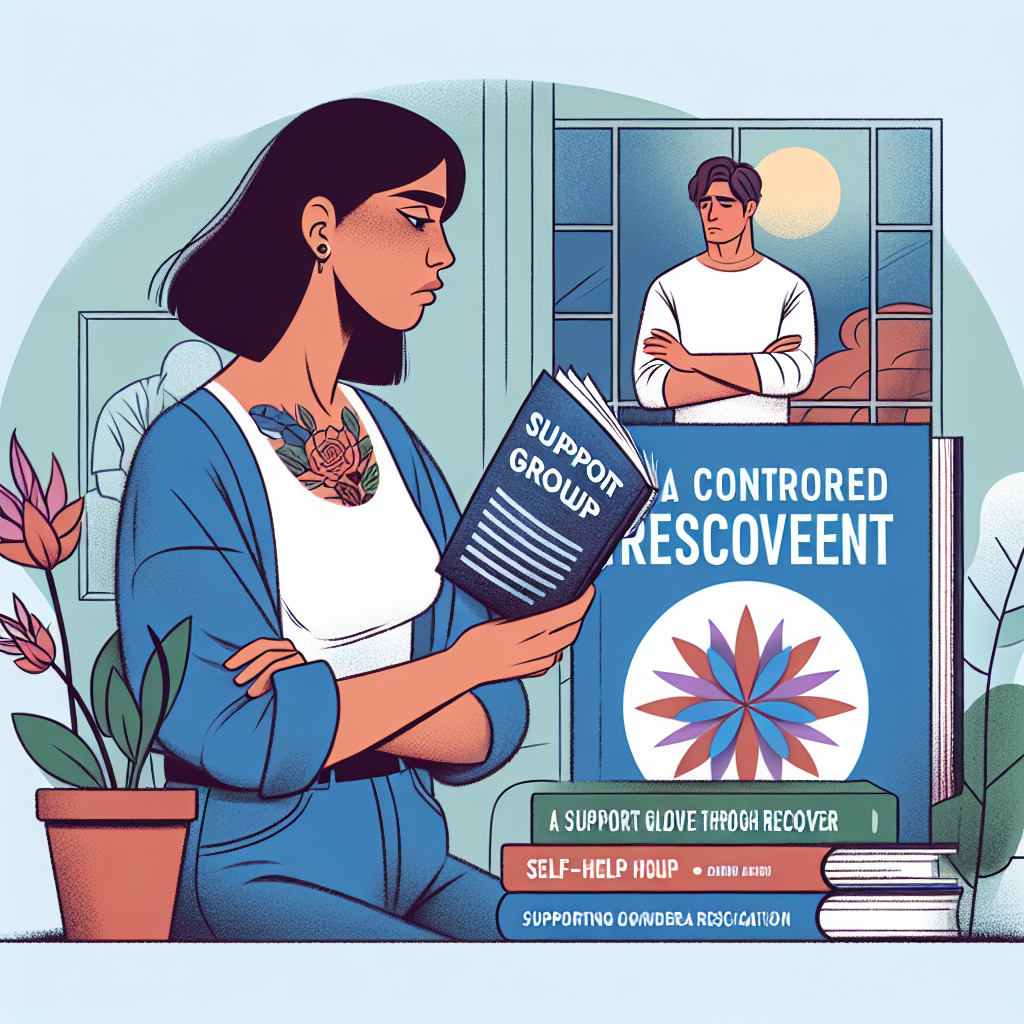-
Table of Contents

“Transform Anger into Empathy: Support Recovery with Compassion and Strength.”
Introduction
Dealing with anger and resentment when supporting a recovering addict is a complex and emotionally charged experience. It involves navigating a myriad of feelings that can arise from the challenges and setbacks inherent in the recovery process. Anger and resentment can stem from past hurts, broken trust, and the emotional toll of witnessing a loved one’s struggle with addiction. These emotions, if left unaddressed, can hinder the support system’s effectiveness and potentially jeopardize the recovery journey. Understanding the root causes of these feelings, developing healthy coping mechanisms, and fostering open communication are crucial steps in managing these emotions. By addressing anger and resentment constructively, supporters can create a more compassionate and supportive environment that promotes healing and long-term recovery for both the addict and themselves.
Strategies for Managing Anger While Supporting a Recovering Addict
Supporting a recovering addict can be an emotionally taxing journey, often fraught with feelings of anger and resentment. These emotions, while natural, can hinder the recovery process for both the supporter and the individual in recovery. Therefore, it is crucial to adopt strategies that help manage these intense feelings, fostering a more supportive and positive environment.
One effective strategy is to practice self-awareness. Recognizing and acknowledging your feelings of anger and resentment is the first step toward managing them. It is essential to understand that these emotions are valid and often stem from a place of hurt, disappointment, or fear. By identifying the root causes of your anger, you can begin to address them constructively. Journaling can be a helpful tool in this process, allowing you to express your emotions privately and reflect on their origins.
Another important approach is to set healthy boundaries. Supporting a recovering addict does not mean sacrificing your well-being. Establishing clear boundaries helps protect your emotional health and prevents feelings of being overwhelmed or taken advantage of. Communicate your limits clearly and assertively, ensuring that both you and the recovering individual understand and respect these boundaries. This can include setting limits on financial support, time spent together, or topics of conversation that may trigger negative emotions.
Additionally, seeking support for yourself is crucial. Engaging in therapy or joining support groups for families and friends of addicts can provide a safe space to share your experiences and gain insights from others who are in similar situations. Professional guidance can offer coping strategies and emotional support, helping you navigate the complexities of your feelings. Support groups, on the other hand, can provide a sense of community and understanding, reminding you that you are not alone in this journey.
Practicing self-care is another vital strategy. Taking time for yourself to engage in activities that bring you joy and relaxation can help alleviate stress and improve your overall well-being. Whether it’s exercising, reading, meditating, or spending time with loved ones, self-care activities can replenish your emotional reserves and provide a much-needed respite from the challenges of supporting a recovering addict.
Moreover, fostering empathy and compassion can transform your perspective and reduce feelings of anger and resentment. Try to understand the struggles and pain that the recovering individual is experiencing. Addiction is a complex disease, and recovery is a long and arduous process. By empathizing with their journey, you can cultivate a sense of compassion that can replace negative emotions with a more supportive and understanding attitude.
Communication is also key in managing anger and resentment. Open, honest, and non-judgmental conversations can help clear misunderstandings and build trust. Express your feelings calmly and constructively, focusing on how certain actions or behaviors affect you rather than placing blame. Active listening is equally important, as it shows the recovering individual that you value their perspective and are willing to support them through their recovery.
Lastly, practicing forgiveness can be a powerful tool in managing anger and resentment. Holding onto grudges can be emotionally draining and counterproductive. While forgiveness does not mean condoning harmful behavior, it allows you to let go of past hurts and move forward with a more positive outlook. It is a process that takes time and effort, but it can lead to emotional healing and a stronger, more supportive relationship.
In conclusion, managing anger and resentment while supporting a recovering addict requires a multifaceted approach. By practicing self-awareness, setting boundaries, seeking support, engaging in self-care, fostering empathy, communicating effectively, and embracing forgiveness, you can create a healthier and more supportive environment for both yourself and the recovering individual. This journey, though challenging, can ultimately lead to personal growth and stronger, more resilient relationships.
Overcoming Resentment: Tips for Family Members of Recovering Addicts
Supporting a loved one through addiction recovery can be an emotionally taxing journey, often fraught with feelings of anger and resentment. These emotions are natural responses to the pain and disruption addiction can cause in family dynamics. However, overcoming these feelings is crucial for both your well-being and the recovery process of your loved one. By adopting certain strategies, you can navigate these turbulent emotions and foster a more supportive environment.
First and foremost, it is essential to acknowledge your feelings without judgment. Anger and resentment are valid emotions that arise from a place of hurt and betrayal. Suppressing these feelings can lead to further emotional distress and may even hinder your ability to support your loved one effectively. Instead, give yourself permission to feel these emotions and understand that they are a part of the healing process.
Communication plays a pivotal role in overcoming resentment. Open and honest conversations with your loved one can help clear misunderstandings and rebuild trust. It is important to express your feelings without blaming or shaming the recovering addict. Use “I” statements to convey your emotions, such as “I feel hurt when…” or “I am struggling with…”. This approach can help prevent defensiveness and promote a more constructive dialogue.
In addition to communicating with your loved one, seeking support from others can be incredibly beneficial. Joining a support group for families of recovering addicts can provide a safe space to share your experiences and gain insights from others who are facing similar challenges. Professional counseling can also offer valuable tools and strategies for managing your emotions and improving your mental health.
Practicing self-care is another vital aspect of overcoming resentment. Taking time for yourself can help replenish your emotional reserves and reduce stress. Engage in activities that bring you joy and relaxation, whether it’s reading a book, going for a walk, or spending time with friends. Remember that taking care of your own needs is not selfish; it is necessary for you to be able to support your loved one effectively.
Forgiveness is a powerful tool in the journey of overcoming resentment. While it may not happen overnight, working towards forgiveness can help release the hold that anger and resentment have on you. Forgiveness does not mean condoning the actions of the past, but rather, it is about freeing yourself from the burden of negative emotions. It can be helpful to focus on the progress your loved one is making in their recovery and to recognize their efforts to change.
Setting healthy boundaries is also crucial in this process. Boundaries help protect your emotional well-being and prevent further harm. Clearly communicate your limits and expectations to your loved one, and be consistent in enforcing them. This can help create a more stable and respectful relationship, which is beneficial for both parties.
Lastly, it is important to maintain hope and patience. Recovery is a long and often non-linear process, with setbacks and challenges along the way. By focusing on the positive changes and progress, you can cultivate a more optimistic outlook. Celebrate small victories and remind yourself that change takes time.
In conclusion, dealing with anger and resentment when supporting a recovering addict is a complex but manageable task. By acknowledging your feelings, communicating openly, seeking support, practicing self-care, working towards forgiveness, setting boundaries, and maintaining hope, you can overcome these emotions and create a more supportive environment for your loved one. This journey, while challenging, can ultimately lead to stronger relationships and personal growth.
Q&A
1. **Question:** What are some effective strategies for managing anger when supporting a recovering addict?
**Answer:** Effective strategies include practicing mindfulness and meditation, seeking therapy or counseling, setting healthy boundaries, and engaging in physical activities to release built-up tension.
2. **Question:** How can one address feelings of resentment while supporting a recovering addict?
**Answer:** Addressing feelings of resentment can be achieved by openly communicating feelings with the recovering addict, joining support groups for families of addicts, focusing on self-care, and possibly seeking professional help to process and manage these emotions.
Conclusion
Dealing with anger and resentment when supporting a recovering addict requires a multifaceted approach that includes self-awareness, open communication, and professional support. It is essential to recognize and validate one’s own emotions while maintaining empathy and understanding towards the recovering individual. Setting healthy boundaries, seeking therapy or support groups, and practicing self-care are crucial steps in managing these complex emotions. Ultimately, fostering a supportive environment that encourages mutual respect and growth can significantly aid both the supporter and the recovering addict in their journey towards healing and recovery.



